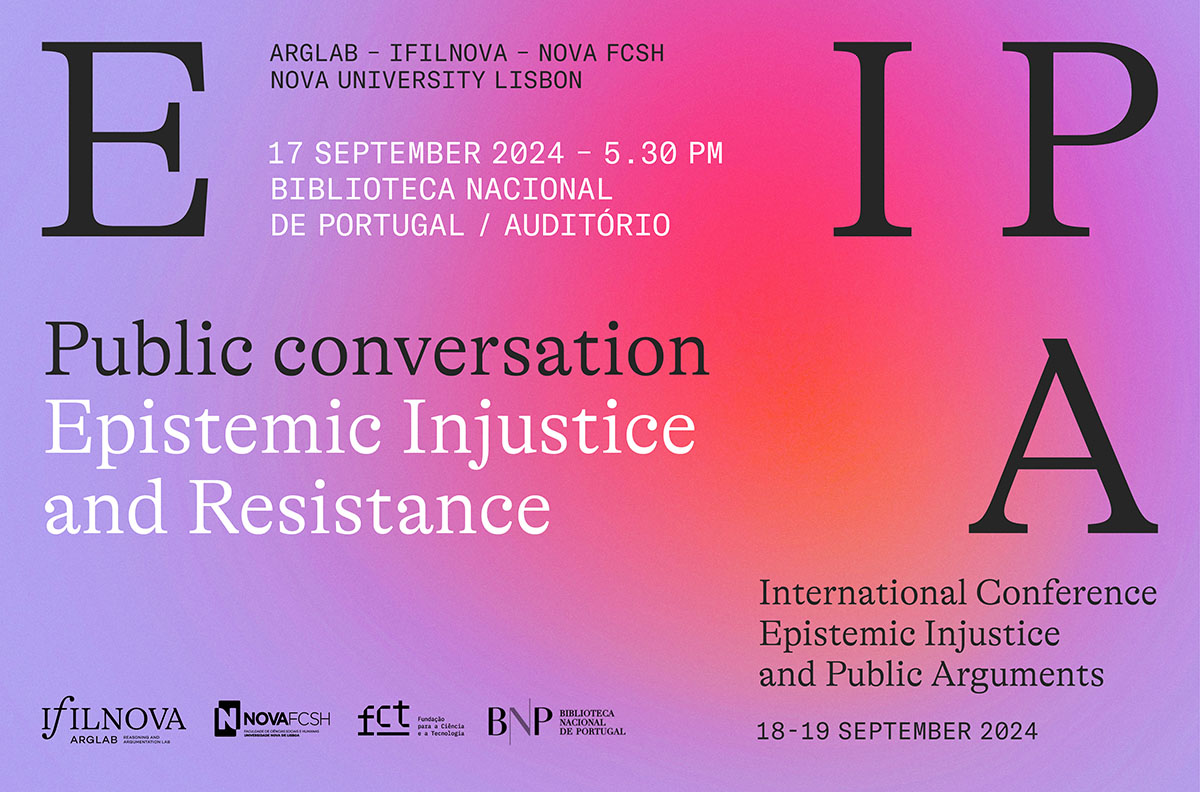Public conversation on Epistemic Injustice and Resistance

The public conversation on “Epistemic Injustice and Resistance” will take place on September 17 at Biblioteca Nacional de Portugal, within the scope of the International Conference on Epistemic Injustice and Public Arguments (EIPA). The conference will take place between the 18th and 19th of September at NOVA FCSH. More information on the conference here.
Epistemic Injustice and Resistance
The concept of epistemic injustice has been developed over the last 15 years to designate a type of injustice related to knowledge. Miranda Fricker identified two main forms of injustice to which a person belonging to a disadvantaged group is subjected in their capacity as a knower: testimonial injustice, under which the credibility of someone is undermined, and hermeneutical injustice, under which people are unable of making sense of their own experiences due to a gap in the available collective interpretative resources.
Epistemic injustice has been explored in various contexts, such as politics, health, education, law, etc. Scholars have described the specific harms caused by its systemic and structural manifestations in contemporary societies to understand its peculiarity and, as José Medina pointed out, develop practices of resistance that can contrast with the discrimination and oppression caused or reinforced by epistemic injustice.
The public conversation “Epistemic Injustice and Resistance” will focus on the workings of epistemic injustice and potential practices of resistance in public argumentation, considering the power dynamics between institutions, communication systems, and disadvantaged groups. Focussing on acts of protest as an example of epistemic resistance, we will discuss the challenges social movements face and their actions of resistance to inequality and silencing.
We will consider resistance to epistemic injustice in the specific context of Portuguese society in a conversation with Miranda Fricker (New York University) and José Medina (Northwestern University), experts in epistemic injustice and epistemology of resistance, with the participation of Flávio Almada and Andreia Galvão, militants from the Vida Justa movement, and moderation by Dima Mohammed (NOVA Institute of Philosophy).
Event supported by the Foundation for Science and Technology (Fundação para a Ciência e para a Tecnologia) of the Portuguese Ministry of Education and Science under the project UIDB/00183/2020.

